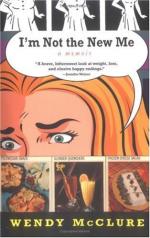“I wish an answer to
this, and you are at liberty to publish
both if you choose.
“Very respectfully,
“A. Lincoln.”
“Colonel Robert Allen.”
Usually during the campaign Lincoln was obliged to meet personal attacks, not by letter, but on the platform. Joshua Speed, who later became the most intimate friend that Lincoln probably ever had, tells of one occasion when he was obliged to meet such an attack on the very spur of the moment. A great mass-meeting was in progress at Springfield, and Lincoln had made a speech which had produced a deep impression. “I was then fresh from Kentucky,” says Mr. Speed, “and had heard many of her great orators. It seemed to me then, as it seems to me now, that I never heard a more effective speaker. He carried the crowd with him, and swayed them as he pleased. So deep an impression did he make that George Forquer, a man of much celebrity as a sarcastic speaker and with a great reputation throughout the State as an orator, rose and asked the people to hear him. He began his speech by saying that this young man would have to be taken down, and he was sorry that the task devolved upon him. He made what was called one of his ‘slasher-gaff’ speeches, dealing much in ridicule and sarcasm. Lincoln stood near him, with his arms folded, never interrupting him. When Forquer was done, Lincoln walked to the stand, and replied so fully and completely that his friends bore him from the court-house on their shoulders.
“So deep an impression did this first speech make upon me that I remember its conclusion now, after a lapse of thirty-eight years. Said he:
“’The gentleman commenced his speech by saying that this young man would have to be taken down, and he was sorry the task devolved upon him. I am not so young in years as I am in the tricks and trade of a politician; but live long or die young, I would rather die now than, like the gentleman, change my politics and simultaneous with the change receive an office worth three thousand dollars a year, and then have to erect a lightning-rod over my house to protect a guilty conscience from an offended God.’
“To understand the point of this it must be explained that Forquer had been a Whig, but had changed his politics, and had been appointed Register of the Land Office; and over his house was the only lightning-rod in the town or country. Lincoln had seen the lightning-rod for the first time on the day before.”
[Illustration: Lincoln in 1860.—Hitherto unpublished.
From a carbon enlargement, made by Sherman and McHugh of New York City, of an ambrotype owned by Mr. A. Montgomery of Columbus, Ohio, to whose generosity we owe the right of reproduction. This portrait of Lincoln was made in June, 1860, by Butler, a Springfield (Illinois) photographer. On July 4th of that year, Mr. Lincoln delivered an address at Atlanta, Illinois, where he was the guest of Mr. Vester Strong. Before leaving town he handed Mr. Strong the ambrotype which we copy here. Mr. Strong valued the picture highly, but as he had no children to whom to leave it, and as he wished it to be in the care of one who would appreciate its value, he gave it a few years ago to Mr. Montgomery.]




